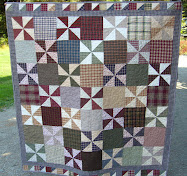This is a friend of mine, Ida. She is not only a great friend, but a Godly woman and an experienced bread maker. I hope that you enjoy this interview, I found it to be super helpful.

Please tell us a little bit about yourself: I am a Christian, homeschooling, stay at home, mother of three. I have a wonderful husband that supports me and encourages me in all that I do. I am passionate about country living and nutrition. I am always trying and learning how to do new things that either make us healthier or enable us to live more economically. We are blessed to have a home on an acre where we raise and grow all that we can. The things that bring me the most joy are gardening, horses, and spending time with my family.
How long have you been baking bread? And what made you want to start? One of my first endeavors was baking my own bread. I had been baking bread for several years before learning about whole wheat and the nutritional benefits of bread made from freshly milled flour. Even though it required a little more work, I wanted my family to have the most nutritious and delicious bread possible.
What types of flours have you used and which ones are your favorites? I have experimented with Kamut, whole wheat, pastry, coconut, almond, and most recently rice flour, sorghum, and tapioca flour. My favorite is Kamut. It is a very versatile flour that can be used to make bread as well as biscuits, pancakes, and cookies. It is light in texture and has an earthy, nutty taste. It is also said to be very high in protein, lower in gluten, and therefore easier to digest for some.
Do you mill your own grains? Yes, I do. There are many types of grain mills on the market today. I would recommend researching and finding the one that best suits your budget and needs. I purchased the Kitchen Mill and it has been a great mill so far. I purchase the berries or grains in bulk and then grind them as I need them.
What about sprouting your grains or soaking your flours ahead of time? Is it worth it? Although it is an extra step in bread making, soaking or sprouting neutralizes phytic acid and activates enzymes making it more nutritious and easier to digest. Sprouting and soaking also applies to legumes, nuts, grains, and seeds.
Tell us about kneading. Some say you don’t need to, some say you do, some say for a few minutes, others say for 15 minutes- it’s confusing! What are your suggestions? Kneading is essential in my experience. It stretches the dough and develops the gluten. How long, depends on the type of grain you use and the texture of the dough you are working with. Each recipe is different but the general rule is around 10 minutes.
Let’s talk yeast. What have you found that works? Do you proof your yeast? One important aspect of yeast is that it needs to be fresh. I store mine in the refrigerator. My favorite yeast is SAF instant and yes, I do proof my yeast. I mix the yeast with warm water and honey and let it sit while I combine my other ingredients. Proofing ensures that the yeast is active.
Any helpful hints on rising your breads? A warm, draft free environment is critical. I also found that keeping the loaves from getting bumped is important. Once my loaves are shaped and set in their places for rising, I don’t move or touch them until I am gently placing them in the oven for baking.
What type of pans work best for baking? I have used both glass and stainless steel. Both work nicely. With either one, be sure to grease the pan generously. Nothing is more frustrating than to have a perfect loaf ruined because it sticks to the bottom of the pan.
What is the best method for storing your bread? When the bread is removed from the oven let it cool completely before putting it into plastic bags. I store our bread in the pantry. We eat it fast enough that mold is not usually a problem. I’ve found that the refrigerator dries the bread out. For long term, the freezer is the best for storage.
How long does fresh baked bread stay good for? It should last several days if stored in a cool, dry place. Homemade bread does not have all the preservatives so it will not last as long as store bought bread.
Thank you so very much Ida for taking the time to answer these questions. I know that your knowledge will benefit all of us!

.jpg)






.JPG)










































4 comments:
So wonderful...I think there should be a taste test...I've never even heard of the different flours!
Thank you for the interview and insight!
Cool interview and I even learned a couple of things I didn't know about bread :) :)
Love, hugs and greetings from Oregon, Heather :)
I have been wanting to experiment with different flours/grains. I usually use a bread flour, unbleached, or whole wheat.
Thanks for the great interview and information.
i LOVE that you're doing the breadmaking 101 posts!! it's one of the many home talents that i have yet to master, and i'm totally inspired :] thanks so much for checking on me and baby boy! labor was quick- in at 8, baby by noon... can't beat that :] and we are loving this, such an unexpected blessing that i'm thanking Jesus for daily. i will admit that i have desperately missed crafting, and my pre-baby projects only served as a tease or tickle to my crafting fancy- can't wait to get back to it!!
much love.
Post a Comment